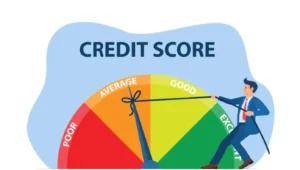The banking system is the foundation of modern financial systems. It connects savers and borrowers and facilitates economic growth. Financial institutions, banks accept deposits, offer loans, and provide various financial services for individuals and businesses. Banks are regulated to protect your money while making a profit through interest charges on loans and investments they make using deposited funds.
Your relationship with your bank is based on mutual trust and benefit. The bank uses the money you deposit to invest and lend to other customers and to protect it. The banks can pay you interest for certain accounts while charging higher rates of interest on loans. This arrangement allows them to make a profit.
Knowing this relationship will help you better manage your money and choose the right banking services. The banks also offer essential services such as payment processing, currency conversion, and financial advice. They are therefore integral to the management of personal finances.
Types of Bank Accounts
The different bank accounts you have will serve different purposes. Checking accounts allow you to access your money easily through online transfers, debit cards, and checks. These accounts earn little or no interest but offer maximum liquidity to pay bills, make purchases, and manage day-to-day expenditures.
Savings accounts are designed to help you accumulate savings over time while earning interest. Savings accounts usually limit withdrawals and transfers to a certain amount each month, which encourages you to let your money grow. Savings account interest rates are higher than those of checking accounts, but they’re lower than the returns on other investments.
Money market accounts offer the best of both checking funds and savings accounts. They often require higher minimum balances but also provide better interest rates. Check-writing privileges are limited. Certificates of deposit (CDs), which lock money for a specific period in exchange for higher guaranteed interest rates, are ideal for saving for short-term goals.
Understanding Loans
Personal loans are a way to borrow money and then pay it back over time with interest. Personal loans are lump sums that can be used for debt consolidation, home improvement, major purchases, or other purposes. They usually have fixed interest rates with monthly payments.
Mortgages are loans that cover the purchase of real estate. They usually last between 15 and 30 years, with your house as collateral. The interest rate on these loans is usually lower than that of other types, as the collateral reduces the risk for the bank. The auto loan works similarly. It uses the vehicle as collateral and typically has shorter repayment terms.
Credit cards are revolving loan products that allow you to access a credit limit predetermined by the card issuer. This credit limit is replenished as you make your payments. Credit cards are more flexible than installment loans, which have fixed monthly payments. However, they usually charge higher interest rates if you carry a balance from month to month.
Basics of Credit
Your credit history, credit score, and other factors can have a significant impact on your banking relationships. Credit scores range from 300 to 800 and reflect your creditworthiness. They are based on payment history, credit usage, length of history, type of accounts, recent credit inquiries, etc.
Credit scores are used by banks to determine credit approval, interest rate, and credit limit. Credit scores that are higher will usually result in lower rates of interest, better terms, and higher credit limits. Lower scores can lead to denials of loans or less favorable conditions. To build good credit, you must make regular payments on time, keep credit card balances at a minimum, and maintain various credit types.
Credit reports are equally important to understand, since they detail your credit history. They also form the basis for your credit score. Reviewing your credit report regularly helps you to identify errors, track progress, and understand the impact of your financial behavior on your creditworthiness. As part of their service, many banks offer free credit score tracking.
Online and Mobile Banking
Digital banking has changed the way we interact with financial institutions. We can now access accounts, transactions, and services 24/7 via mobile apps and websites. Online banking lets you check your balances, make transfers, pay bills, deposit checks, and manage investments anywhere that has internet access.
Apps for mobile banking are becoming more sophisticated. They offer features such as budgeting tools and spending categorization. Account alerts and financial advice can also be provided. You can now open an account, apply for a loan, or resolve customer service issues using digital channels. This reduces the need to visit a branch.
Digital banking is a secure service. Banks use multi-factor authentication and fraud monitoring. By understanding these security features and by following best practices such as using strong passwords or avoiding public WiFi for banking, you can keep your account safe and enjoy the convenience of digital banking.
Building Your Financial Future
Banks are the backbone of your personal financial management. They provide secure places to keep money, credit for large purchases, and tools that will help you reach your financial goals. Understanding these basics will help you make informed decisions on which accounts to open and how to build credit responsibly. You can also decide which services are best to support your financial goals.
Compare the options offered by different banks and assess your current needs. Consider factors other than interest rates, such as fees, customer service, and digital tools. Choose products and institutions that will grow and change with your needs.
FAQs
1. How do credit unions and banks differ?
Banks, on the other hand, are for-profit institutions that have more branches and services and may charge higher fees.
2. How much money do I need to keep in my account?
Keep just enough money to cover your monthly expenses and a small buffer (typically one to two month’s expenses), while transferring the excess to high-yielding savings or investment accounts.
3. How will I know if my bank fails
FDIC insurance protects up to $250,000 for each depositor, per bank. This ensures that you will get your money back even if a bank fails.
4. Can I avoid bank charges?
Avoid fees such as overdrafts or monthly maintenance charges by maintaining minimum balances. Use in-network ATMs. Set up direct deposit.
5. When should I switch banks?
If you are paying excessive fees or receiving poor customer service, or if there are better offers that meet your financial needs, consider switching.




